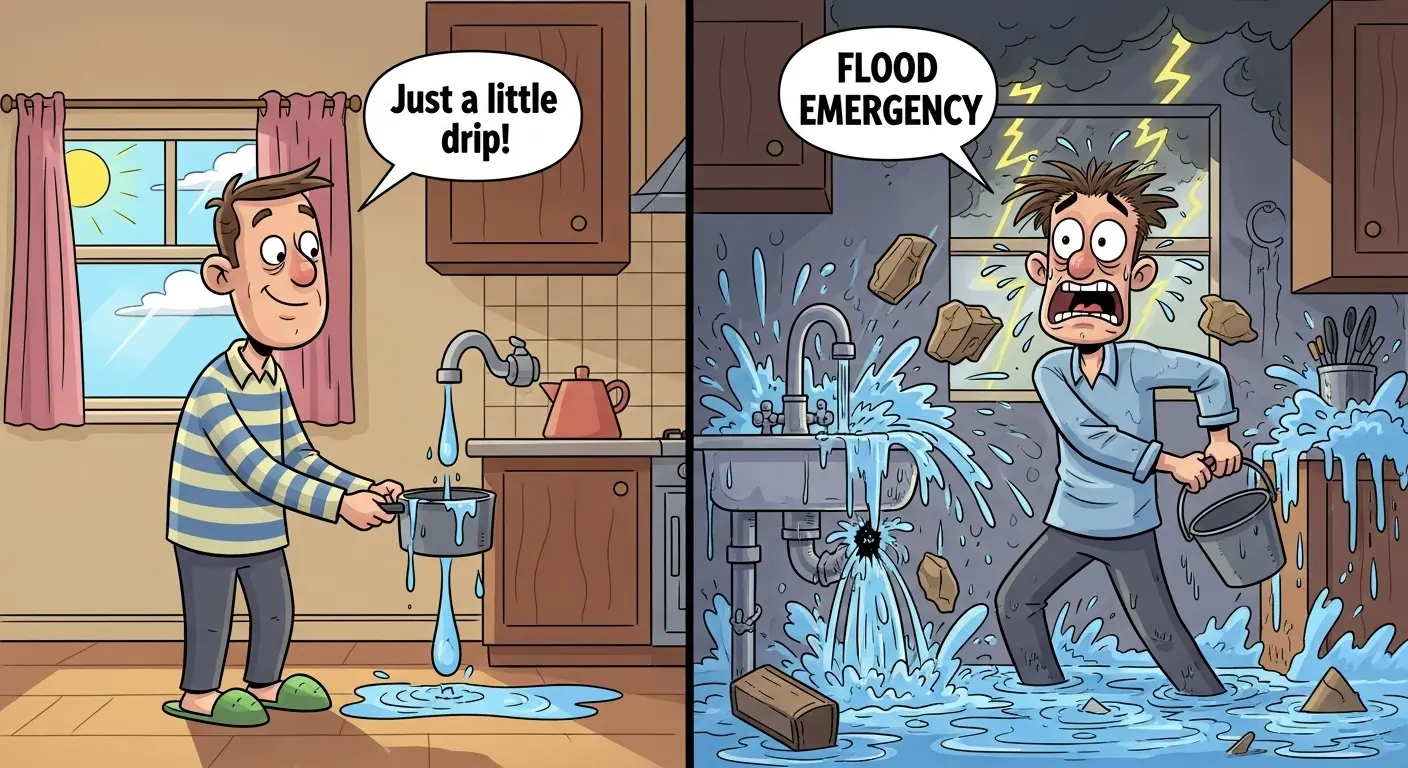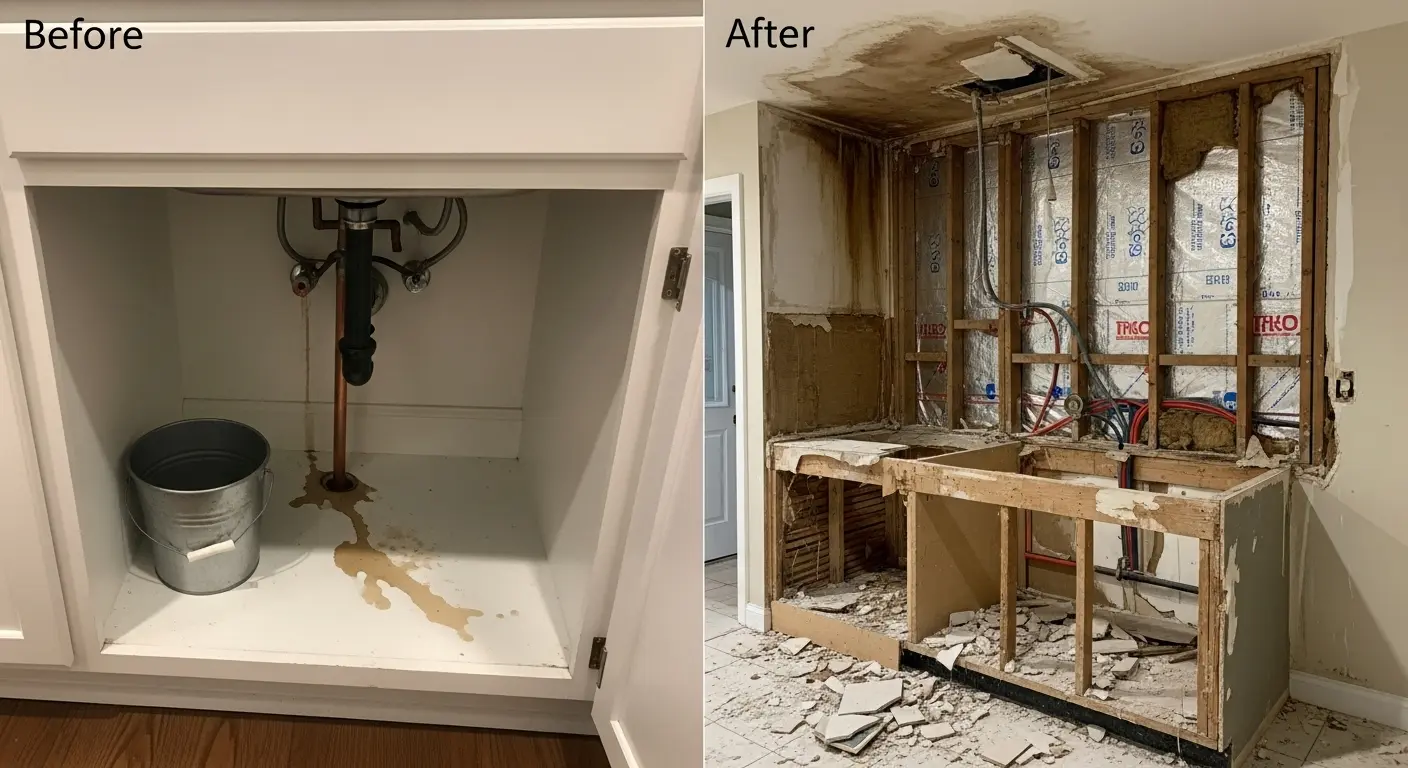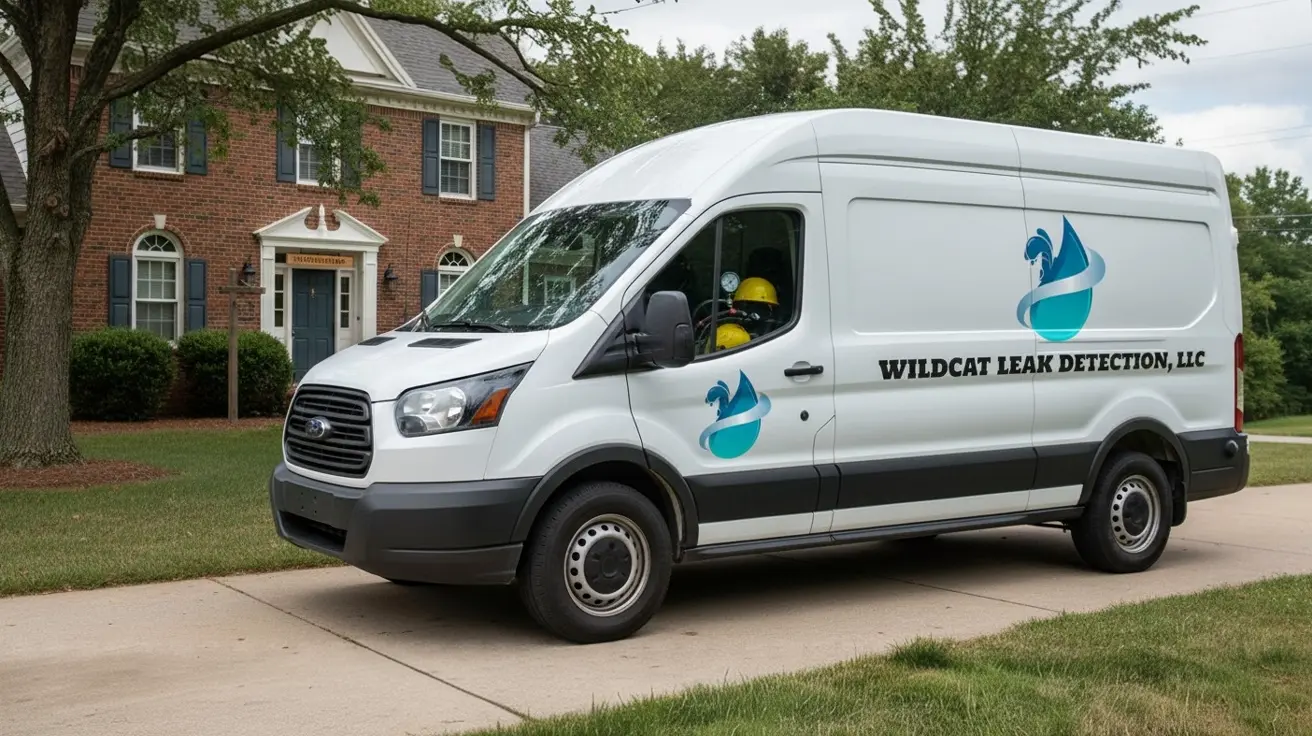Slab Leaks: What Are They and How Can You Spot One?
Slab leaks are common. Learn slab leak detection, signs of a slab leak, and slab leak repair for homeowners. A leak can cause significant damage to your concret

A slab leak is one of the most serious plumbing issues a homeowner can face, especially in homes built on a concrete slab foundation. These hidden leaks can cause significant damage to your home’s structure, lead to costly repairs, and even threaten your family’s health if left unchecked. This article will help you understand what a slab leak is, the warning signs to watch for, common causes, and how Wildcat Leak Detection in Lexington, KY uses advanced Leaktronics equipment to find and fix slab leaks quickly and efficiently. If you’re a homeowner concerned about protecting your investment, this guide is a must-read.
What Is a Slab Leak?
A slab leak refers to a leak that occurs in the water lines or pipes running beneath the concrete slab foundation of a home. These leaks are often hidden and can go undetected for weeks or even months, allowing water to seep into the foundation and surrounding soil. Slab leaks can develop in both hot and cold water lines and are especially common in homes built on concrete slabs without basements.
Why Are Slab Leaks Such a Big Problem for Homeowners?
Slab leaks can cause significant damage and costly repairs if not caught early. Water from a slab leak can weaken the structural integrity of your home, erode the soil beneath the slab, and lead to foundation cracks or shifting. Over time, slab leaks can also cause mold growth, increase your water bills, and create unhealthy living conditions. Because the pipes are hidden, these leaks are often difficult to detect without professional help.
What Causes Slab Leaks in Concrete Foundations?
There are several common causes of slab leaks:
- Corrosion: Pipes can corrode over time due to water chemistry, soil conditions, or age, leading to leaks.
- Shifting Soil: Soil beneath the slab can expand, contract, or shift, putting pressure on pipes and causing them to crack or break.
- Abrasion: Pipes rubbing against concrete or other materials can wear down, especially with hot water lines that expand and contract.
- Poor Installation: Improperly installed or low-quality pipes are more likely to fail.
- High Water Pressure: Excessive water pressure can stress pipes and joints, increasing the risk of leaks.
- Chemical Reactions: Water that is too acidic or alkaline can corrode pipes from the inside out.
Understanding the cause of a slab leak is important for choosing the right repair method and preventing future issues.

What Are the Warning Signs of a Slab Leak?
Homeowners should watch for these warning signs that may indicate a slab leak:
- Unexplained spike in your water bill
- The sound of running water when no fixtures are in use
- Damp, warm, or wet spots on floors
- Cracks in walls, flooring, or baseboards
- Mold or mildew smell, or visible mold growth
- Drop in water pressure throughout the house
- Water pooling around the foundation or outside the home
If you notice one or more of these signs, you may have a slab leak and should act quickly to prevent further damage.
How Can You Spot a Slab Leak in Your Home?
Spotting a slab leak can be tricky since the pipes are hidden beneath your home’s concrete slab. However, you can:
- Monitor your water bill for sudden increases
- Listen for the sound of water running when all taps are off
- Check for warm or damp spots on your floors, especially if you don’t have radiant heating
- Look for cracks in your flooring or walls that weren’t there before
- Smell for musty odors or look for mold growth, which could indicate moisture under the floor
If you observe any of these, it’s time to call a professional for slab leak detection.
What Should You Do If You Suspect a Slab Leak?
If you suspect a slab leak:
- Turn off your main water supply to prevent further water damage
- Avoid using plumbing fixtures until the leak is located and repaired
- Call a professional plumber or leak detection specialist, like Wildcat Leak Detection, for slab leak detection and repair
Attempting to fix a slab leak yourself can lead to more damage and higher repair costs. Professional help ensures the leak is found and addressed properly.
How Do Professionals Detect Slab Leaks?
Professional slab leak detection uses advanced technology to pinpoint the exact location of the leak with minimal disruption:
- Acoustic listening devices amplify the sound of water escaping from pipes.
- Thermal imaging cameras detect temperature changes caused by leaking hot water lines.
- Pressure testing isolates sections of plumbing to find pressure drops.
- Moisture meters measure dampness in floors and walls.
- Leaktronics equipment, used by Wildcat Leak Detection, offers industry-leading accuracy for finding hidden leaks.
These tools allow professionals to find the leak without unnecessary jackhammering or damage to your home.
What Are the Best Ways to Fix a Slab Leak?
There are several slab leak repair methods, depending on the leak’s location and severity:
- Spot repair: Jackhammering through the slab at the leak’s location to fix or replace the damaged pipe.
- Pipe rerouting: Abandoning the leaking pipe and running new plumbing lines around the slab.
- Epoxy pipe lining: Inserting an epoxy coating to seal small leaks inside the pipe, often used for less severe leaks or when minimal disruption is preferred.
- Tunneling: Digging under the slab to access and repair the pipe, preserving your flooring.
A professional will recommend the best repair option for your home and budget.

Does Homeowners Insurance Cover Slab Leak Repair?
Homeowners insurance may cover the cost to repair damage caused by a slab leak, such as tearing out and replacing the slab and fixing water damage, if the leak was caused by a covered peril (like a burst pipe from freezing). However, insurance often does not cover the cost to repair the pipe itself if the leak is due to normal wear and tear, corrosion, or poor maintenance. Always review your policy and talk to your insurance agent to understand your coverage.
How Can You Prevent Slab Leaks in the Future?
Preventing slab leaks is possible with proactive maintenance:
- Monitor and maintain safe water pressure in your home (ideally between 40–60 psi).
- Schedule annual plumbing inspections with a licensed plumber.
- Install a water softener or filtration system if you have hard or acidic water.
- Address drainage issues and soil movement around your foundation.
- Replace old or corroded pipes with modern, corrosion-resistant materials.
Regular maintenance and early detection are the best ways to protect your home from slab leaks.
Key Takeaways: Slab Leaks in Lexington, KY
- A slab leak is a hidden leak beneath your home’s concrete slab foundation that can cause significant damage if left untreated.
- Warning signs include high water bills, damp or warm floors, cracks in walls or flooring, mold growth, and the sound of running water when fixtures are off.
- Common causes are corrosion, shifting soil, abrasion, poor installation, and high water pressure.
- Professional detection with Leaktronics equipment allows for accurate, minimally invasive repairs.
- Repair options include spot repair, pipe rerouting, epoxy lining, and tunneling.
- Homeowners insurance may cover some slab leak damage, but not always the pipe repair itself.
- Prevent water leaks by maintaining safe water pressure, scheduling regular plumbing inspections, and addressing water quality and foundation issues.
- For expert slab leak detection and repair in Lexington, KY, trust Wildcat Leak Detection to protect your home and peace of mind.
If you suspect a slab leak or want to schedule a professional inspection, contact Wildcat Leak Detection today for fast, reliable service!



